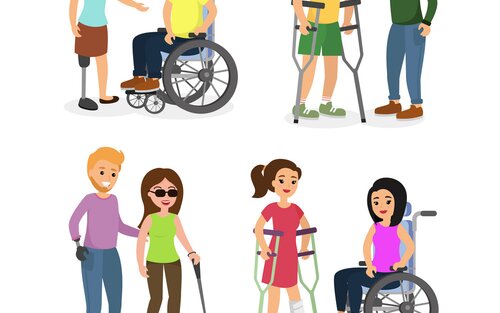As much support as necessary, as much responsibility as possible
Assisted outpatient living caters for persons with a disability or a psychological condition who want to and can continue living independently but who, due to their impairment, require support from a specialist service in some areas of life.
In contrast to forms of inpatient living, persons in assisted outpatient care live in their own home or a rented apartment. That way the patient is afforded as much privacy as possible. The main goal of this form of living is to leave the patient with as much responsibility as possible. Persons with a disability or a psychological condition should thereby be supported in forming their independent life.
The outpatient care can take place in one’s own home or in a residential community.
Outpatient support at home
This form of support is possible for people who can live independently to a great extent and only require low levels of help. Under certain circumstances, persons with disabilities can live in their own home alone, with a partner, or with family and still make use of the help of an outpatient care service. The affected individual therefore enjoys a great deal of privacy without having to forgo daily outpatient support from specialists. One thing to bear in mind is that the apartment should be accessible if needed or else necessary renovations must be made.
For many individuals with a disability it is desirable to live in a separate apartment and to find a form of independent life outside of a care home. This seems to be a priority especially for younger people.
Outpatient support in a care home
Another form of outpatient care is the communal living in care homes or residential groups. In residential groups persons with disabilities live together as a community on a volunteer basis. The group might only consist of persons with disabilities or it might have both people with and without the need for support. Outpatient support in the care home takes place when help is necessary.
This form of living is ideal for people who avail of a great deal of personal responsibility and who are still independent, but for whom a separate apartment is out of the question. Generally it can be assumed that people in care homes need help and support with practical everyday things, from hygiene, to keeping rooms clean, to grocery shopping. However, the individual needs are vital. It’s important with this form of living that inhabitants get along well with others.

